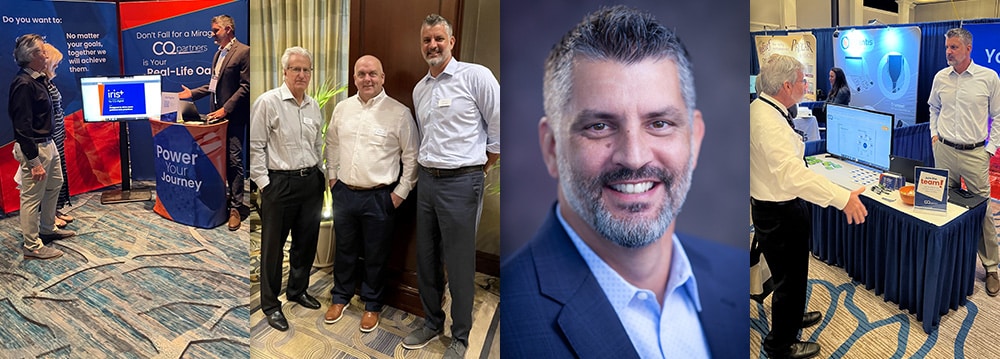
There is more to recruiting than combing through a stack of resumes. Anyone can look good on paper. There are countless websites and resources devoted to helping job seekers paint their best selves on paper. It’s also easy to embellish or, even, lie on a resume.
CQ’s recruiting team prides itself on being expeditious yet thorough when filling vacant positions in our practices. Our screening process begins with reviewing a candidate’s resume to consider his/her education, skills, and professional background.
However, it’s all about looking beyond the resume to discover the person behind it. This is the only way to gauge if a candidate will be a long-term asset to your business. Too many hiring managers overlook exceptional candidates simply because they don’t check off every box on their “must-have” list or fit their idea of “the perfect candidate.” One thing I’ve learned over the past 15 years of recruiting for Consult is that the best person for the job is not always the person you’d expect.
Below are six tactics we recommend to our Associates to help them identify the “right fit” for their practices.
1. Keep an open mind, especially when hiring for non-clinical roles.
You’re casting a very narrow net and potentially missing out on great candidates if you’re only willing to consider people with experience working in an audiology practice or the medical field. Over the years, I’ve placed numerous candidates in our practices with no prior industry experience who have developed into rock-star employees. For front office positions, I’ve had great success with candidates with sales and/or retail experience (more on that later).
There are five main questions you should answer before extending an offer—this is what matters the most:
- Can the candidate do the job?
- Is the candidate motivated to do the job?
- Is the candidate interested in learning new skills?
- Is the candidate coachable?
- Is the candidate a good culture fit?
2. Hire for personality over competency.
If you’re a busy practice looking to fill a position quickly, it’s understandable that you’d want a candidate who can hit the ground running. But there are drawbacks to only interviewing based on skillset. Skills can be developed— however, traits, attributes, and attitudes that often make a candidate successful cannot be taught—they either have them or they don’t. Studies show that most new hires fail NOT because of technical competence (skills) but because of other factors relating to emotional intelligence (EQ).
EQ is that hard-to-describe, special something in a person that affects how they make decisions and navigate complex situations. When vetting a candidate, be sure to look at the following traits which are predictors for high levels of EQ:
- Ability to learn and adapt to change
- Response to stressful situations and constructive criticism
- Teamwork and social skills
- Integrity, honesty, and empathy
- Determination and drive for success
- Accountability/ownership of responsibilities
In the long run, practices are better off taking the time to properly onboard and train employees. CQ’s weekly teletrainings and Employee Development Program (EDP) can ensure every member of your team has the skills needed to be effective in their roles.
3. Ask behavioral questions in your interviews.
This is the best way to get a feel for a candidate’s EQ. During interviews, ask candidates a question relating to conflict resolution. For example, “Tell me about a time that you had a disagreement with a co-worker (or customer) and how you resolved it?”
Then, consider the following:
- Did they know what they did wrong?
- Did they control their emotions/anger?
- Did they really understand the other side?
- Why did they seek to resolve the conflict? Did they engage for the right reasons?
- How did they solve the issue? Were they mindful of the outcome or social cost?
When interviewing candidates with a sales/retail background, my ears perk up if they mention going out on the floor and approaching customers to help them with their purchases and/or upsell them on products (thus producing more sales for the store). I also make a note if they mention staying late, working weekends and holidays, or coming in when coworkers call out. What this says to me is that this person has a strong work ethic, is driven to succeed, knows how to be a team player, and can be flexible.
4. Ask more than just questions.
Incorporating role-playing exercises in your interview process will give you a better idea of how a candidate will perform in the role. If you’re hiring someone to answer phones, have him/her answer a mock phone call during the interview. Or, pretend to be a difficult patient in a common scenario and pay close attention to how well the candidate fares under the pressure.5. Try to remain objective and elicit feedback from others.
There are dozens of unconscious biases that affect our judgment every day. We’re genetically programmed to like people who are like us and fear those who are different or unfamiliar. If a candidate reminds you of an employee you’ve had a positive or negative experience with previously, there’s a good chance it’s going to color your opinion of that person.
The easiest way to prevent biases from clouding your hiring decisions is to: A) be mindful of them, B) seek out other people’s opinions, and C) follow a uniform process in how you assess and interview candidates.
One of the benefits of working with Consult Recruiting is that we provide feedback for every candidate we screen. We also work with practices to develop core competency models and interview and assessment questions, all of which can help ensure your hiring process is fair and that every candidate is held to the same standards.
6. Pay attention to the details and focus on the facts.
Many job seekers are going to say whatever they think employers want to hear in interviews. Employers also tend to favor the most charismatic and well-spoken candidates. That’s why it’s important to try to read between the lines and look for concrete evidence wherever you can.
A few examples:
- Take note of how long they worked for their past employers. Do they have a pattern of bouncing from job to job quickly or committing to jobs for a long time? Also, is there any overlap? Did they ever juggle two jobs or an internship/externship and a part-time job?
- Ask for examples of specific achievements. How exactly did they engineer those achievements? Do they have any numbers to back up their claims?
- Pay attention to the questions they ask. Are they insightful? Do they suggest the candidate is enthusiastic about the role? Did the candidate clearly research the industry and/or practice?
- Read their body language. You can learn a lot about a candidate’s personality and level of interest in the opportunity from their gestures, posture, facial expressions, and eye contact.
Your employees are your most valuable asset. Behind every successful practice is a high-performing team of engaged and motivated individuals. That’s why it’s critical to make the right hiring decisions. Sometimes that means thinking outside the box and choosing a candidate who has the attitude and personality to positively influence your company’s culture over the most skilled and experienced candidate.
There are a lot of diamonds in the rough—you just need the right lens and a little bit of polish to find them.









